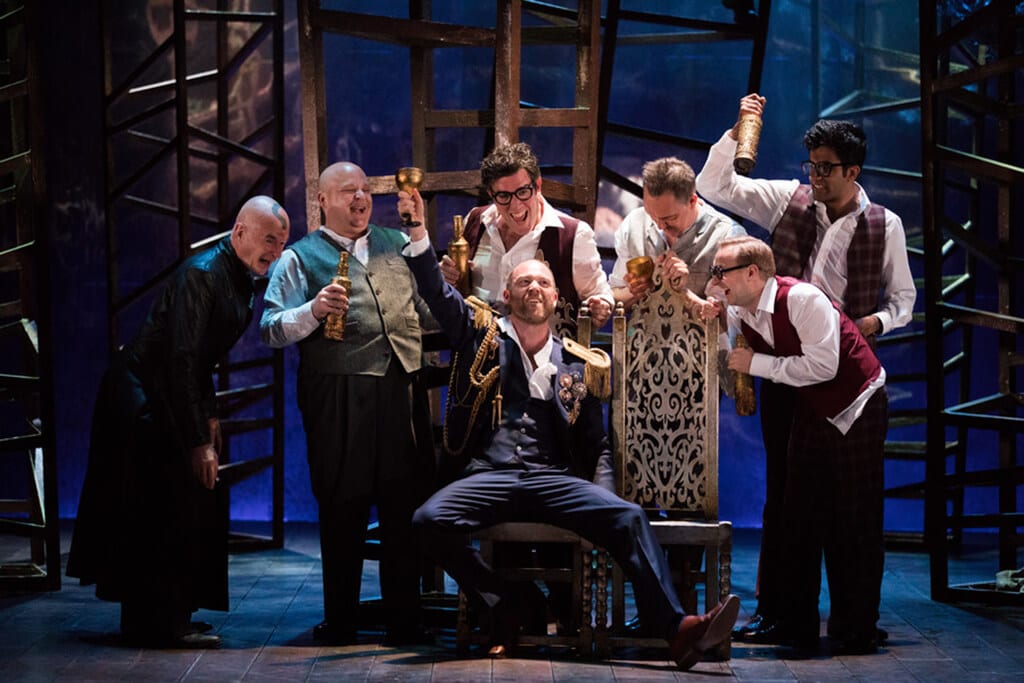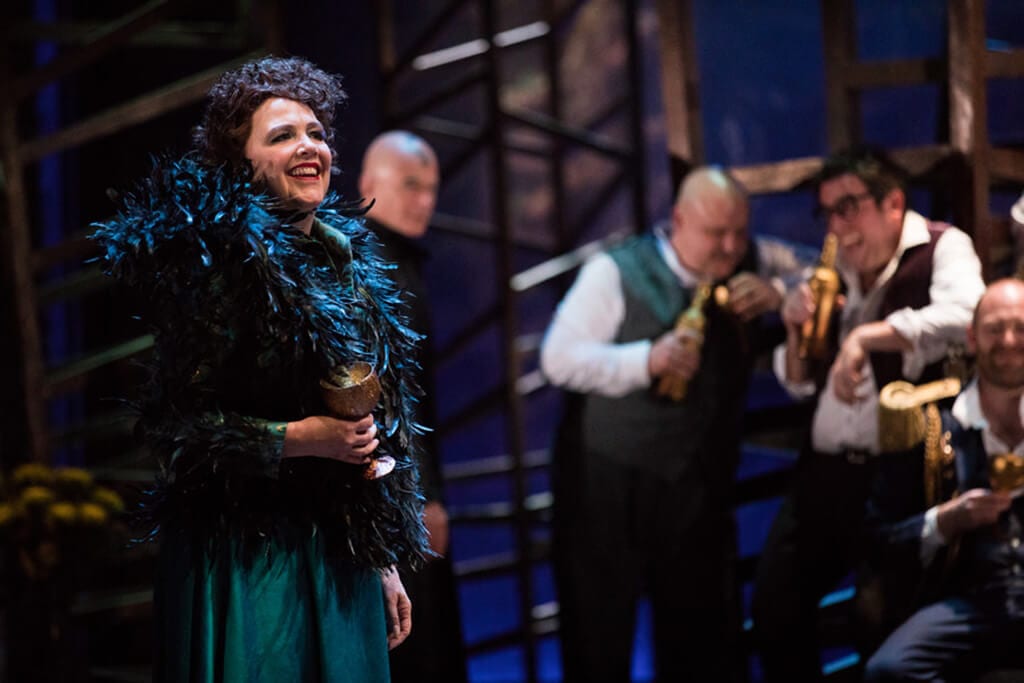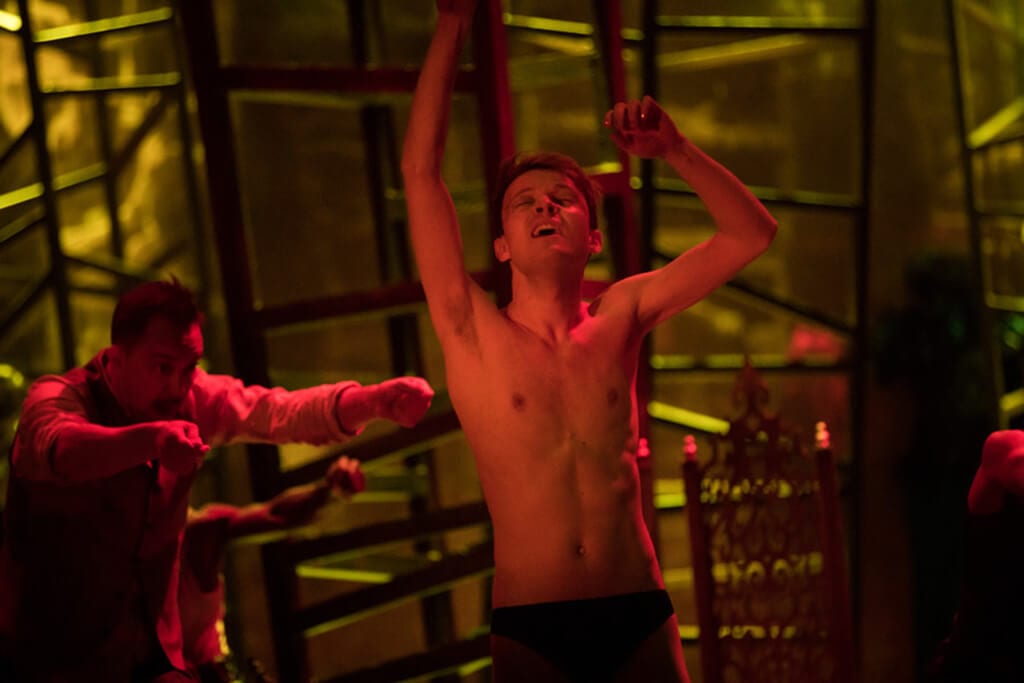There was much publicity before the opening of this play about the fact that in this production of Wilde’s erotic jewel of a play by director Owen Horsley the part of the titular heroine was to be played by a man. In the event, I am not certain that this casting really illuminates the play in any extra or special way, though it does remind one that Wilde was gay and it does have the excuse of celebrating the 50th anniversary of the change in the law in the UK about adult, consensual, homosexual love. That said, once you get used to Matthew Tennyson as “the princess”, it is not a great stretch to see a man playing a woman. Probably it is no more of a stretch than required in Shakespeare’s time to see Rosalind or Cleopatra played by a young man. It is an interesting experiment, and I did not mind it or find it distracting; but it is also a bit of a dead end – it leads, in itself, to no new revelations. On the other hand, it does represent the theme of the fluidity of sexuality and desire very clearly.
The great strength of this production comes from the direction and understanding of the text itself. It is really well spoken and acted by the cast and you can hear the language beautifully. Characterizations are very strong and clear. Matthew Pidgeon and Suzanne Burden are completely convincing as the depraved power couple Herod and Herodias. I must praise Pidgeon especially for his swing from paederastic lust for his step-daughter to utter horror at her demand for the head of John the Baptist. Gavin Fowler is memorably riveting as Iokanaan. He is much more visible than usual and makes a strong impact; he makes Salome’s fascination with him totally believable and conveys the obsessive spirituality and religiosity of the character.
Matthew Tennyson, who is Salome, seems very aware of the sexual ambiguity of the casting of his part and is quite playful at times in swinging between fluttery, almost innocent femininity and his own masculine self. He pulls off the Dance of the Seven Veils without undue embarrassment, and manages to convey a sense of Salome’s virginity as well as her descent into lustful obsession.
There isn’t a weak member of the cast and the staging itself is energetic and engaging. The clarity of approach is extremely pleasing. But above all you get to hear Wilde’s language, and because the text is projected with such intelligence, you also think about the sexual and other politics of the era of Rome’s occupation of Palestine as well as of the era in which Wilde wrote the play and its meanings today. The play itself is a superb example of the best of the symbolist movement, of the Modernism of its era and it deserves to be performed more often and examined in many different ways. This is a more than adequate representation of the work. It is worth the trip to Stratford. The richness and complexity of Wilde’s approach to the Biblical story are presented so that you are immediately and totally immersed in this world. It is an intense experience.
Of course, Richard Strauss was captivated by the play when he saw it and set the German translation as an opera with very few changes to the text itself. So if you want to get to know the play in an even more heightened form, it is worth seeking out a DVD of one of the famous productions of the opera.
Maria Ewing as Salome in the famous production by Peter Hall
Catherine Malfitano as Salome in the Lucy Bondy production
Angela Denoke as Salome in the production by Nikolaus Lehnhoff





